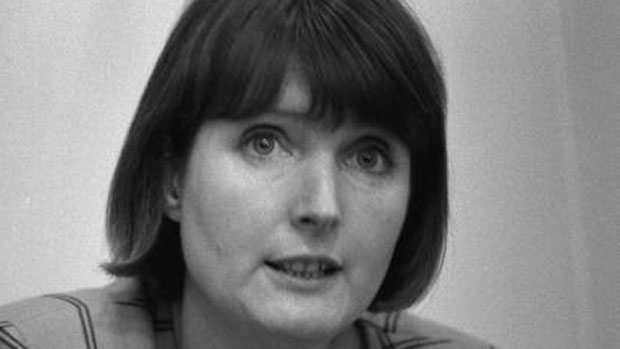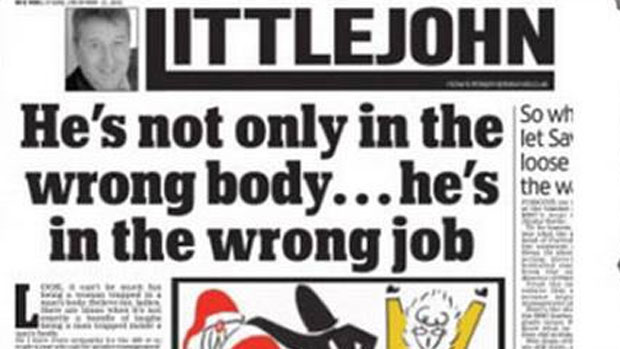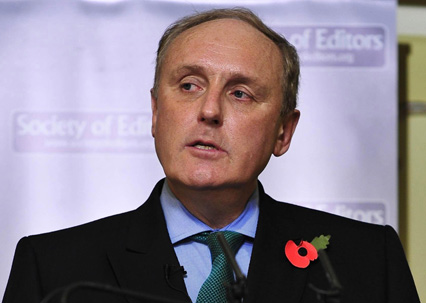Paedophile Info Exchange: different time, different values
Daily Mail's war against Harriet Harman is based on misconceptions, says Chris Moores

A free daily email with the biggest news stories of the day – and the best features from TheWeek.com
You are now subscribed
Your newsletter sign-up was successful
THE DAILY MAIL has been exploring the relationship between the National Council for Civil Liberties (NCCL, now known as Liberty) and the Paedophile Information Exchange (PIE) in the 1970s, and has embroiled deputy leader of the Labour Party and former NCCL legal officer Harriet Harman in a bitter war of words. Clearly and perhaps unsurprisingly, the exchange is much more about politics than history, and it has been characterised by piecemeal historical knowledge and shallow research.
To the Daily Mail and other media outlets, PIE’s affiliation with the NCCL and its presence at the organisation’s annual general meetings is incomprehensible, and is enough to condemn the NCCL and its members. If we accept this framework, no further analysis is required. But of course, it is highly problematic to identify and criticise the relationship without considering the history of the two organisations, issues regarding civil liberties politics more generally, and the context of 1970s sexual politics.
First, it is worth considering the structure and history of the NCCL and how this made affiliation possible. From interviews I have conducted – and from other sources – it certainly seems that NCCL staff, members and executives were hostile to PIE. Yet its structure – a legacy of its formation in the 1930s – meant the NCCL had a strong democratic streak, which permitted widespread affiliations and the input of members and affiliates at annual general meetings. Anyone or any organisation that supported the NCCL could become a member, and the NCCL did not offer support to these groups.
The Week
Escape your echo chamber. Get the facts behind the news, plus analysis from multiple perspectives.

Sign up for The Week's Free Newsletters
From our morning news briefing to a weekly Good News Newsletter, get the best of The Week delivered directly to your inbox.
From our morning news briefing to a weekly Good News Newsletter, get the best of The Week delivered directly to your inbox.
During the 1930s, this position made it possible for the NCCL to include members of the Communist Party of Great Britain while staying ostensibly “non-political”. Affiliation simply meant access to newsletters and material, and allowed organisations to raise issues at AGMs.
The rush to make politicians apologise or express regret relies on a base assumption that it is inappropriate for any organisation to have any relationship with a group working for paedophiles' rights, but the appropriateness of a civil liberties group having a relationship with a paedophile organisation is open to debate. While the NCCL-PIE affiliation is clearly problematic, it is worth looking in a bit more detail at the issues raised at the NCCL’s AGMs.
These covered the threat of chemical castration of sex offenders and the question of unlawful attacks and harassment of known or suspected paedophiles. Evidence of this can be easily sourced from NCCL annual reports and other printed sources in the Liberty Archive of the Hull History Centre.
Whatever we might think about the rights of sex offenders, it seems understandable that such issues were under discussion by a civil liberties body. Indeed, it was only for this reason that the NCCL Executive let them be raised.
A free daily email with the biggest news stories of the day – and the best features from TheWeek.com
What the Daily Mail’s campaign ignores, then, is the question of whether NCCL members from the 1970s should really be expected to apologise simply because they considered these civil liberties concerns, or because the structure of an organisation built long before they joined it permitted the affiliation of any member that claimed to support it.
Throughout its history, the NCCL’s reputation suffered whenever it associated with individuals or organisations whose civil liberties concerns bordered the margins of acceptability, be they communists in the 1930s and 1940s, mental health patients in the 1950s, National Front members during the 1980s, or terrorist suspects more recently. The difficulty is that those on the boundaries of acceptability are those most likely to need to test the boundaries of civil liberty. The NCCL has therefore always been unable to avoid controversial and divisive issues, and it would be pointless if it did not engage with them.
Even so, PIE was a small and marginal organisation with around 200 members. It barely had a relationship with the NCCL, and it would be wrong to see the NCCL’s operations in the 1970s entirely through the prism of PIE. It now seems obvious that this was a highly problematic and potentially dangerous organisation. But PIE itself was highly manipulative and able to present itself in different ways to different audiences.
It pursued a strategy of affiliating with organisations as a way of appearing presentable and networking with with relationships with the NCCL, differentiating the idea of the “child-lover” who would never harm a child from that the sexual molester, and engaging misleadingly with wider discussions about the appropriate boundaries regarding the age of consent. As time went on, such positions simply became untenable for PIE as it was scrutinised by campaigners and the media.
As historians Mathew Thomson and Lucy Robinson have highlighted, this was a period in which the boundaries of sexual acceptability were open to debate. In a post-Freudian world, the idea that children were not sexual was increasingly queried, whilst counter-cultural and sexual liberation groups were eager to stress the culturally constructed nature of sexual values. This was not just the case in Britain.
Although PIE was clearly met with hostility throughout its existence, that it existed and even dared to have aspirations of entering the mainstream only shows how different the sexual politics of the 1970s were from those of the present day. It is probably more historically useful to understand those values, what they represented, how they emerged and how they conflicted with more mainstream sexual mores than to view them entirely through the lens of our contemporary political, social and cultural values.
Chris Moores is a research fellow at the Department of History at the University of Birmingham. This article was originally published on The Conversation.
-
 5 cinematic cartoons about Bezos betting big on 'Melania'
5 cinematic cartoons about Bezos betting big on 'Melania'Cartoons Artists take on a girlboss, a fetching newspaper, and more
-
 The fall of the generals: China’s military purge
The fall of the generals: China’s military purgeIn the Spotlight Xi Jinping’s extraordinary removal of senior general proves that no-one is safe from anti-corruption drive that has investigated millions
-
 Why the Gorton and Denton by-election is a ‘Frankenstein’s monster’
Why the Gorton and Denton by-election is a ‘Frankenstein’s monster’Talking Point Reform and the Greens have the Labour seat in their sights, but the constituency’s complex demographics make messaging tricky
-
 Coroner condemns press after suicide of Lucy Meadows
Coroner condemns press after suicide of Lucy MeadowsSpeed Read Mail and Littlejohn attacked as coroner argues 'nothing has been learned from Leveson'
-
 Paul Dacre: self-serving and sanctimonious
Paul Dacre: self-serving and sanctimoniousSpeed Read The Mail editor’s attack on Judge Eady is nothing but a plea to be allowed to continue publishing lies
